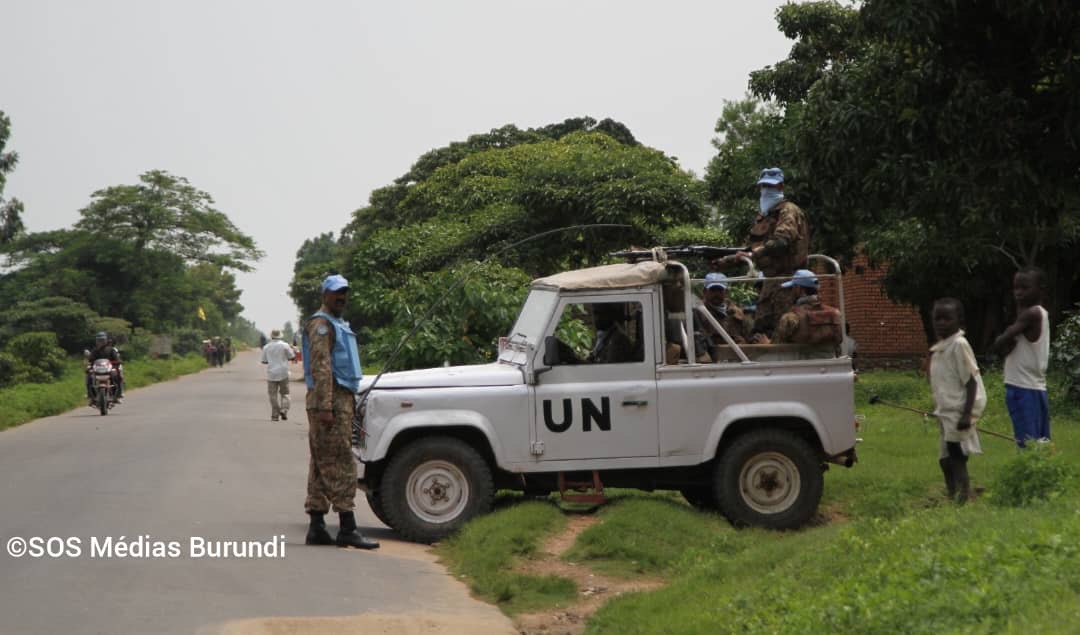South Kivu : Kinshasa accuses the M23 of preparing an offensive on Uvira, local authorities have already retreated to Bujumbura

SOS Médias Burundi
Bukavu, July 12, 2025 – The Congolese government is warning of a possible imminent offensive by the M23 and its ally, the AFC, in Uvira territory, in South Kivu province. This is a serious threat, as suspicious troop movements are reported in the region and local authorities already appear to be distancing themselves, preferring to spend the night in Bujumbura, the neighboring Burundian commercial capital.
During the Council of Ministers held Friday in Kinshasa, government spokesperson Patrick Muyaya stated that « the M23/AFC is continuing its military maneuvers in several strategic areas, with the clear aim of reconquering Uvira territory. » The rebel movement already occupies vast territories in the provinces of North and South Kivu, including mineral-rich areas.
Suspicious movements in Kamanyola
On the ground, alerts are increasing. Mafikiri Mashimango, civil society coordinator in Uvira, confirmed having observed unusual movements of armed troops coming from Nyangezi. More than 250 heavily armed fighters were reportedly seen in Kamanyola, heading towards Katogota, not far from Uvira.
« The provincial coordination of the New Congolese Civil Society is alerting about the passage of M23/AFC soldiers accompanied by a military jeep transporting Rwandan soldiers who crossed the border at Kamanyola, » Mr. Mashimango said in a statement issued on the evening of July 11.
An explosive situation in the region
As the M23 continues its movements, the FARDC, supported by the Burundian armed forces, Wazalendo militiamen, and even elements of the FDLR, have reportedly launched counterattacks against rebel positions in the areas of Kahololo, Katogota, Rugezi, Minembwe, and Bijabo, according to sources close to the M23.
The Wazalendo, local militias, are supported and coordinated by the Kinshasa authorities in their fight against the M23. As for the FDLR (Democratic Forces for the Liberation of Rwanda), it is an armed group composed in part of former members of the Rwandan genocidal forces, accused of participating in the genocide against the Tutsi in 1994. Having since taken refuge in the forests of eastern Congo, they are regularly accused by Kigali of being supported and armed by the DRC to destabilize Rwandan territory.
Congolese President Félix Tshisekedi has repeatedly downplayed this threat, describing the FDLR as a « residual force » reduced to banditry and no longer posing any danger to Rwanda.
During military preparations, negotiations in Qatar
Ironically, peace talks are currently underway in Doha, Qatar, between envoys from the Congolese and Rwandan governments. But no concrete progress has yet been made public. The M23 is affiliated with the Congo River Alliance (AFC), a politico-military movement seeking to increase its legitimacy regionally.
This predominantly Tutsi armed group took up arms again at the end of 2021, accusing the Congolese authorities of failing to respect agreements for the reintegration of ex-combatants. It has conquered several areas, including the strategic Bunagana border post with Uganda in June 2022.
Uvira, the last unoccupied stronghold
To this day, Uvira remains the last major city in South Kivu still under Congolese authorities’ control, a few kilometers from Bujumbura, in the Burundian territory. According to concordant sources from SOS Médias Burundi, senior provincial officials in South Kivu retreat to Bujumbura every evening after their workday in Uvira, fearing a nighttime attack.
Rwanda again singled out
Congolese authorities and the United Nations have once again accused Rwanda of actively supporting the M23, deploying up to 4,000 troops on the Congolese soil. Kigali categorically denies this, dismissing these accusations as unfounded.
The Washington agreement as a backdrop
This rise in tensions comes as the DRC and Rwanda signed a US-sponsored de-escalation framework agreement in Washington at the end of June. This agreement committed both countries to cease all support for armed groups, withdraw foreign troops from the Congolese soil, and relaunch regional coordination mechanisms to restore peace in the Kivus.
But barely two weeks after the signing, the cross-accusations and military movements on the ground appear to contradict these commitments, raising fears of the failure of the diplomatic process and a new conflagration in the Great Lakes region of Africa.

